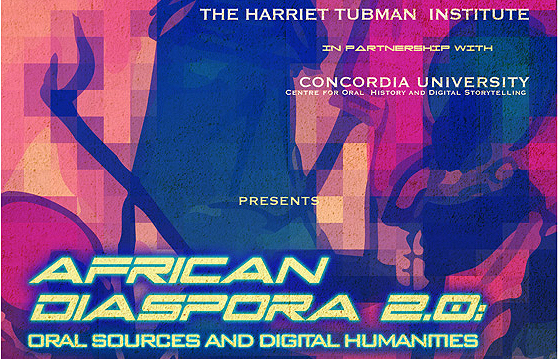 How do you make past and present oral narratives of people within the African diaspora more accessible and visible through technology? That’s what an upcoming three-day workshop will discuss.
How do you make past and present oral narratives of people within the African diaspora more accessible and visible through technology? That’s what an upcoming three-day workshop will discuss.
The African Diaspora 2.0: Oral Sources and Digital Humanities workshop will connect scholars and community historians of Africana studies with digital specialists to discuss how to make oral narratives more accessible and visible. Participants are invited to engage in lively discussions regarding the role of race, place and economy in the digital turn and to register for the hands-on software labs and demonstrations related to the mapping, collection, organization and dissemination of oral testimonies.
The workshop will take place Friday, Sept. 26, to Sunday, Sept. 28, with an opening reception the first day from 6 to 8pm in the Schulich Private Dining Room, Seymour Schulich Building, Keele campus. Day two will begin at 305 York Lanes.
Several speakers from Canada and the United States will address the issues, including Alex Gil of Columbia University who will offer a model for flexible digital archives that can be deployed in several environments, with low learning curves and light technological frameworks. In addition, he will argue that platform and technical expertise directly affect the critical and ethical import of digital archives, especially of oral history projects.
Clair Payton of New York University and Duke University will discuss the Haiti Memory Project, a digital oral history initiative dedicated to preserving and sharing the testimonies of survivors of the country’s 2010 earthquake. It is a collection of over one hundred audio-recorded interviews with Haitians in Port-au-Prince in the summer and fall of 2010, conducted in Creole, French and English.
In her talk, Roopika Risam of Salem State College says she will “highlight projects and tools that have taken up the challenge of addressing race and the digital and outline areas where work remains to be done.” She will also argue that “digital media provide unique opportunities for defining diasporic identities through connectivity, emphasizing how collections of digital humanities work are engaged in defining, supporting and even creating African diasporic affiliations.”
The workshop is presented by The Harriet Tubman Institute at York University and the Concordia’s Centre for Oral History & Digital Storytelling.
For anyone interested in attending the workshop, register online at the Harriet Tubman Institute website.
For more information, view the African Diaspora 2.0: Oral Sources and Digital Humanities workshop program.


